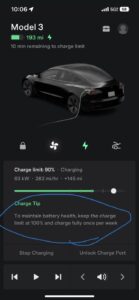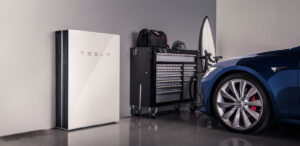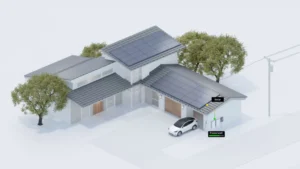Yes, you can charge your Hyundai at a Tesla charger, but it comes with a caveat. Tesla chargers use a specific connector that is not compatible with most Hyundai models without an adapter.
If you find yourself in need of a quick charge, it’s essential to have the right adapter on hand. Not all Hyundai vehicles support charging at Tesla stations, so checking your car’s specifications is crucial.
In this article, we’ll explore the ins and outs of navigating Tesla charging stations with your Hyundai, ensuring you’re prepared for your next road trip.

Can I Charge My Hyundai at a Tesla Charger?
As electric vehicles (EVs) become more popular, many drivers want to ensure they have access to charging stations. If you own a Hyundai EV, you might be wondering, “Can I charge my Hyundai at a Tesla charger?” This question is more complex than it seems. Let’s break down the details to help you understand your charging options better.
Understanding Charging Standards
Before diving into whether you can use a Tesla charger for your Hyundai, it’s important to grasp the basic charging standards used by electric vehicles.
Types of Charging Connectors
Electric vehicles come with different types of connectors based on their manufacturer. Here’s a quick overview:
- Type 1 (SAE J1772): This is commonly used by most American manufacturers, including Hyundai.
- Type 2 (Mennekes): Used mainly in Europe, this standard is compatible with many EVs, including some models from Hyundai.
- Tesla Connector: Tesla has designed its own connector for its Supercharger stations, which is not directly compatible with other brands.
Understanding these standards is crucial because they determine whether you can connect your Hyundai to a Tesla charging station.
Charging Compatibility
Now, let’s get into the heart of the matter: can you charge your Hyundai at a Tesla charger?
Using Tesla Superchargers
Tesla Superchargers are built specifically for Tesla vehicles. Since Tesla uses a unique connector, your Hyundai will not plug directly into a Tesla Supercharger. However, there are a few points to consider:
– **Adapters:** Some third-party adapters claim to allow non-Tesla vehicles to charge at Tesla Superchargers. However, these are often unreliable and can void your car’s warranty.
– **Charging Speed:** Even if an adapter works, charging speed might not match that of Tesla vehicles. Hyundai EVs may not be programmed to take full advantage of Tesla’s rapid charging capabilities.

Using Tesla Destination Chargers
Tesla also operates Destination Chargers, which are found in various public places like hotels and restaurants. These chargers often use the standard J1772 connector, which is compatible with Hyundai EVs. Here’s what you need to know:
– **Compatibility:** Check if the Destination Charger uses a J1772 connector. If it does, you can charge your Hyundai there.
– **Availability:** Destination Chargers are usually slower than Superchargers. Be prepared to wait a bit longer for a full charge.
Hyundai’s Charging Options
If charging at a Tesla station is complicated, what are your options? Hyundai provides various ways to keep your vehicle charged.
Level 1 Charging
Level 1 charging uses a standard household outlet. Here’s what you should know:
– **Convenient:** Simply plug your vehicle into a regular outlet at home.
– **Slow Charging:** Level 1 chargers take a long time to charge your EV fully, usually several hours.
– **Ideal for Overnight Charging:** This method works best for those who have access to an outlet overnight.
Level 2 Charging
Level 2 chargers provide a faster charging experience. Here’s why they might be suitable for you:
– **Faster Charging Times:** Depending on your Hyundai model, you can get a full charge in about 4-8 hours.
– **Public Availability:** Many public places, including shopping centers, and parking garages, offer Level 2 charging stations.
– **Home Installation:** You can install a Level 2 charger at home for convenience.
DC Fast Charging
Many newer Hyundai models support DC fast charging. This option provides the quickest charging times available:
– **Quick Charge:** You can charge up to 80% in about 30 minutes, making it ideal for road trips.
– **Public Charging Stations:** Look for stations that specifically list support for Hyundai EVs.

Benefits of Charging at Public Stations
While Tesla chargers are not ideal for Hyundai vehicles, many public charging stations offer different charging options. Here are some benefits of using these stations:
Variety of Charging Options
Public charging stations cater to various electric vehicle brands. You can find:
– **Level 1 and Level 2 Chargers:** Ideal for longer stays.
– **DC Fast Chargers:** Perfect for quick refueling during a road trip.
Widespread Availability
Public charging stations are becoming increasingly common. Many locations are working to expand their networks, meaning you might find charging stations more easily than before.
Time Management
When planning a trip, knowing where to stop for charging can help you manage your time effectively. Apps like PlugShare or ChargePoint can direct you to stations along your route, making it easier to plan your travel.
Using Charging Apps
Staying updated on where to charge is crucial for any EV owner. Here’s how charging apps can help:
Finding Nearby Chargers
Many apps allow you to search for nearby charging stations based on your location. They often display:
– **Station Type:** See if the station is a Level 1, Level 2, or DC fast charger.
– **Availability:** Check if the station is currently in use or available for charging.
Real-Time Updates
Some apps provide real-time updates on charger status, so you can make informed decisions about where to charge and when to stop.

Future Developments
As electric vehicles grow in popularity, many companies, including Tesla and Hyundai, are taking steps to increase compatibility and charging options. Here’s what you can expect in the future:
Increased Charging Infrastructure
Expect to see a more extensive network of charging stations. This expansion will likely include more options for non-Tesla EVs, including:
– **More Universal Chargers:** Increased adoption of Type 2 connectors.
– **Multi-brand Charging Stations:** More stations designed to accommodate various EV brands and models.
Potential for Collaboration
Some industry experts speculate that Tesla might eventually open its Supercharger network to other manufacturers. This change would allow more EV owners to access fast charging options and increase convenience for everyone.
In summary, while you cannot directly charge your Hyundai at a Tesla Supercharger, there are many charging options available. Hyundai offers various charging solutions, including Level 1, Level 2, and DC fast charging. As the electric vehicle market evolves, the landscape of charging options will improve, making it easier for all drivers to find convenient charging stations. Always keep an eye on the charging standards, invest in charging apps, and stay informed about future developments in the EV charging space. Enjoy your electric driving experience, and remember to plan ahead for those charging needs!
Frequently Asked Questions
What types of charging connectors do Hyundai and Tesla use?
Hyundai electric vehicles typically use the CCS (Combined Charging System) connector, while Tesla uses its proprietary connector in North America. This difference in charging connectors means that a direct connection between a Hyundai and a Tesla charger may not be possible without an adapter.
Are there adapters available to charge a Hyundai at a Tesla charger?
Some companies manufacture adapters that allow non-Tesla vehicles, including Hyundai models, to use Tesla charging stations. However, these adapters may vary in quality and compatibility, so it’s crucial to research and choose one that works effectively for your specific model.
Can I use a Tesla Supercharger to charge my Hyundai?
Generally, Tesla Superchargers are designed for Tesla vehicles and will not charge a Hyundai without an appropriate adapter. Even with an adapter, the charging speed may differ from standard charging methods, and there could be limitations on availability of power or connection.
What should I consider before using a Tesla charger for my Hyundai?
Before attempting to use a Tesla charger for your Hyundai, consider the compatibility of your vehicle with any available adapters. Check if the charging station allows non-Tesla vehicles, as some locations may restrict access. Additionally, verify the charging speed and any potential fees associated with using a Tesla charging station.
Is it common for non-Tesla EV owners to use Tesla charging stations?
While Tesla charging stations primarily serve Tesla vehicles, the growing number of adapters enables some non-Tesla EV owners to access these chargers. However, not all charging stations permit this, so it’s essential to confirm their policies prior to attempting to charge your Hyundai there.
What other charging options are available for Hyundai vehicles?
Hyundai owners can take advantage of various charging options, including Level 2 home chargers, public charging stations with CCS compatibility, and fast charging networks like Electrify America and ChargePoint. These options often provide a more seamless experience compared to attempting to charge at a Tesla station.
Final Thoughts
Charging your Hyundai at a Tesla charger is possible, but it requires some considerations. Tesla chargers use a different connector, so you may need an adapter to ensure compatibility.
While Tesla’s Superchargers primarily serve Tesla vehicles, some stations offer charging options for other electric vehicles, including Hyundai. Always check the specific charger’s compatibility and features before plugging in.
In summary, yes, you can charge your Hyundai at a Tesla charger, provided you have the right adapter and the station supports non-Tesla vehicles. Always verify the details to ensure a smooth charging experience.


